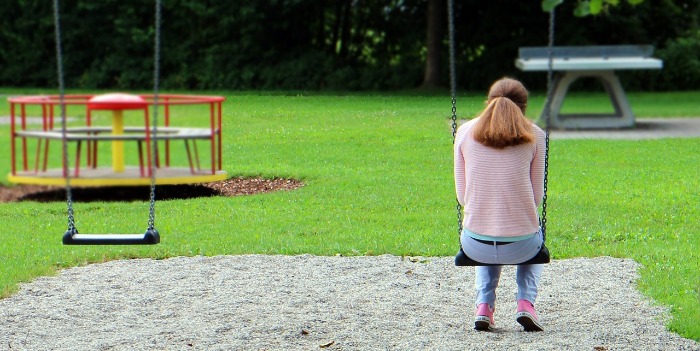What is polio and how can you prevent it?
Polio is a virus that infects your nervous system. You might hear it called poliovirus or poliomyelitis. It’s very rare in most countries around the world nowadays, due to most people being vaccinated. But it’s still possible to get it. And for a small number of people, it can be very serious. Here I’ll explain everything you need to know about polio, and why it’s still important today.

What are the symptoms of polio?
Most people who get infected with polio don’t get any symptoms at all. For those who do, it’s usually a very mild illness, similar to a stomach bug. The most common polio symptoms include:
- high temperature (fever)
- feeling exhausted (fatigue)
- feeling or being sick
- diarrhoea
Some people may also develop headaches, stiff neck, sensitivity to bright light and muscle pains and weakness.
In very few people who get polio (1 in 200 people), the infection can go on to cause paralysis. This is usually in your legs. In the most severe cases, it can be life-threatening.
There is no cure for polio.
How do you get polio?
Polio is very infectious, and easily spreads from one person to another. It usually spreads through the poo of an infected person. You can get it if you’re in direct contact with an infected person, or through contaminated food or water. It can also spread through droplets when an infected person sneezes or coughs.
As most people who get it don’t have any symptoms, they can spread it to thousands of others without knowing.
Is polio still active in the UK today?
Polio used to affect thousands of people every year in the UK. But after a vaccine was introduced in the 1950s, it was completely wiped out. The last natural case of polio in the UK was in 1984. This has been similar in countries around the world. But polio still commonly occurs in Afghanistan and Pakistan. And while the disease still exists in these countries, it means that it is still possible for it to spread to the UK.
In 2022, polio was found in samples of sewage in North London. These samples show that polio was actively spreading between people in this area. The reason for this is that not enough people here are being vaccinated against the virus. Children in London are being offered booster doses of polio to increase their protection and reduce the risk of the virus spreading.
What can I do to reduce my risk of polio?
Getting vaccinated against polio is the only way to protect you or your child from the virus. Polio vaccination is offered as part of the routine childhood vaccination schedule in the UK. Children should have it at:
- 8, 12, and 16 weeks old as part of the 6-in-1 vaccine
- 3 years, 4 months as part of the 4-in-1 pre-school booster
- 14 years old as a 3-in-1 booster
Having all five of these vaccinations should ensure you will be fully protected against polio for life in the UK. If you’re not sure whether your child is up-to-date with their vaccinations, check in their red book or contact your GP practice. If you live in London and your child is aged between 1 and 9, they will also be invited for a polio booster. This is in addition to any doses they’ve already had.
Do I need a polio vaccine as an adult?
If you’ve had your polio vaccinations as a child, you won’t usually need any more as an adult. But you may need an extra booster if:
- you’re travelling somewhere where there have been recent reports of polio, and
- your last polio vaccination was more than 10 years ago
It’s also important to practice good hygiene if you travel to an area that has polio. You can find information about countries you are travelling to on the TravelHealthPro website.
We now offer GP appointments for children under 18. Find out more about our Under 18 GP Service, call us on 0330 822 3072.
-
Sources Sources
- Polio. TravelHealthPro. National Travel Health Network and Centre (NaTHNaC). travelhealthpro.org.uk, accessed 30 November 2022.
- Poliovirus infection. BMJ Best Practice. bestpractice.bmj.com, last reviewed 30 October 2022.
- Poliomyelitis. World Health Organization. www.who.int, published 4 July 2022.
- Polio is spreading. UK Health Security Agency. www.gov.uk, updated 30 September 2022.
- Polio: guidance, vaccination, data and analysis. UK Health Security Agency. www.gov.uk, last updated 10 August 2022.
- Klapsa D, Wilton T, Zealand A, et al. Sustained detection of type 2 poliovirus in London sewage between February and July, 2022, by enhanced environmental surveillance. Lancet 2022;400(10362): 1531–8. doi: 10.1016/S0140-6736(22)01804-9.
- Have your polio vaccine now - information for parents. UK Health Security Agency. www.gov.uk, updated 30 September 2022.
- Joint Committee on Vaccination and Immunisation statement on vaccination strategy for the ongoing polio incident. Department of Health & Social Care. www.gov.uk, published 10 August 2022.
- The complete routine immunisation schedule from February 2022. UK Health Security Agency. www.gov.uk, last updated 21 February 2022.
About our health information
At Bupa we produce a wealth of free health information for you and your family. This is because we believe that trustworthy information is essential in helping you make better decisions about your health and wellbeing.
Our information has been awarded the PIF TICK for trustworthy health information. It also follows the principles of the The Information Standard.

More general health advice articles
Did you find our advice helpful?
We’d love to hear what you think. Our short survey takes just a few minutes to complete and helps us to keep improving our healthy lifestyle articles.
Legal disclaimer
This information was published by Bupa's Health Content Team and is based on reputable sources of medical evidence. It has been reviewed by appropriate medical or clinical professionals and deemed accurate on the date of review. Photos are only for illustrative purposes and do not reflect every presentation of a condition.
Any information about a treatment or procedure is generic, and does not necessarily describe that treatment or procedure as delivered by Bupa or its associated providers.
The information contained on this page and in any third party websites referred to on this page is not intended nor implied to be a substitute for professional medical advice nor is it intended to be for medical diagnosis or treatment. Third party websites are not owned or controlled by Bupa and any individual may be able to access and post messages on them. Bupa is not responsible for the content or availability of these third party websites. We do not accept advertising on this page.







